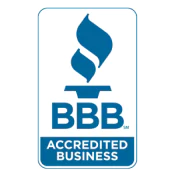Tankless or Tank Style Water Heater?
Which is right for your home in West Des Moines, IA and surrounding areas, a tank-style or tankless water heater? While they both serve the same purpose, each option operates differently. Tank-style water heaters store hot water in a tank until needed, while tankless alternatives supply hot water on demand. With 78 years in the plumbing business, Holt Plumbing & Heating, Inc. installs and services both tankless and tank-style water heaters. Our experts can help you make the best decision for your needs.
Here is some information about these two types of water heaters to get started:
Tankless water heaters don’t store water, eliminating standby energy losses. By heating water only when a faucet or tap is turned on, they are more efficient than tank-style models. However, the initial investment into purchasing and installing a tankless model is higher. There’s the potential need to increase the capacity of the electrical system to accommodate the upgrade.
Water Heater Experts From Holt Plumbing & Heating, Inc.
Water travels through the tankless water heater’s heat exchanger, getting heated before delivery to the home’s fixtures at the ideal temperature. There’s no waiting for water to heat up and no running out of hot water. However, when several appliances or tasks require hot water simultaneously, it may reduce efficiency.
Benefits of tankless water heaters include:
-
Space saving
– the unit is about the size of a small briefcase, mounted on wall and allows freedom of location
-
Energy savings
– The more efficiency operation can trim up to 70% off your water heating bills
-
Lifespan
– Few moving parts allows for cost-effective repairs, achieving longevity between 20 to 30 years.
-
Immediate heating
– You won’t need to wait for water to heat up
-
No risk of flooding
– There’s no tank to rupture, flood and cause property damage
Storage water heaters are found in the majority of homes across West Des Moines, Des Moines, Clive, Urbandale, Norwalk, and Johnston, IA. The average tank capacity is approximately 50 gallons with the unit measuring 5 feet high and 2 feet across. Most models include a factory-installed insulation blanket to minimize heat loss and conserve energy. Powered by natural gas, propane or electricity, the system stores and heats water in the tank until needed. As cold water enters the tank, it’s heated to the desired temperature by a heat exchanger.
An outlet pipe located at the top of the tank delivers hot water to the faucets, showers and taps in the cold. Cold water is introduced into the tank by way of an inlet pipe found at the bottom. This continuous process ensures there’s always hot water ready in the tank but uses considerable energy.
Advantages of a tank-style water heater includes:
-
Lower startup cost
– Both the purchase price and installation expense are considerably lower than a tankless alternative
-
Reliability
– If there’s a power outage, a tank storage water heater can still supply hot water for several days
-
Replacement parts
– Because of their popularity, replacement parts are easy to come by
-
Handles the demands of a large family
– Households that require an 80+ gallon tank would require two tankless water heaters to keep up











